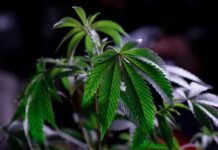
In Australia, PTSD is an all-too-common condition affecting millions. One in 10 people globally, including Australians, may experience PTSD at some point in their lives, underscoring the urgent need for effective treatments and awareness around this challenging mental health disorder. PTSD can cause intense distress not only for those affected but also for their loved ones, leading to difficulties in daily life, substance abuse, and, if left untreated, even suicide.
Over recent years, alternative treatments like medical cannabis have gained traction in Australia as a possible aid for managing PTSD symptoms. While research into the specific ways cannabis may help is still developing, early findings are promising. Before diving into how cannabis might assist PTSD management, it’s crucial to understand what PTSD is, how it manifests, and how the endocannabinoid system (ECS) is involved.
Understanding PTSD
PTSD, or post-traumatic stress disorder, is commonly associated with exposure to extreme trauma, such as witnessing or experiencing life-threatening events, serious injury, or sexual violence. For some, even learning about traumatic events involving close friends or family can lead to PTSD. According to the latest edition of the Diagnostic and Statistical Manual of Mental Disorders (DSM-5), PTSD is categorized under ‘Trauma and Stressor-Related Disorders.’
PTSD can present in several ways, with symptoms that may include:
- Intrusive, recurring memories of the trauma
- Frequent nightmares about the event
- Flashbacks, often with a sense of reliving the trauma
- Emotional distress triggered by reminders of the trauma
- Avoidance of places, people, or activities associated with the event
- Persistent feelings of guilt, shame, or anger
- Reckless or self-destructive behavior
- Difficulty sleeping or concentrating
- Constant hypervigilance or feeling ‘on edge’
- Inability to experience positive emotions
People with PTSD may also experience derealization (feeling the world around them is unreal or dreamlike) or depersonalization (feeling disconnected from themselves). They might engage in risky behaviors, such as excessive alcohol consumption or substance abuse, in an attempt to cope.
The Endocannabinoid System and PTSD
The endocannabinoid system (ECS) is a complex cellular network that regulates several crucial functions, including mood, appetite, and sleep. It contains two main types of cannabinoid receptors:
- CB1 receptors – Located in the brain and central nervous system
- CB2 receptors – Found in immune cells and peripheral tissues
When consuming cannabis, compounds called phytocannabinoids, such as tetrahydrocannabinol (THC) and cannabidiol (CBD), interact with these receptors. THC is known for its psychoactive effects, while CBD is non-psychoactive and has gained popularity for its calming properties. Both compounds have been studied for their potential to manage symptoms of PTSD in Australia and worldwide.
Studies suggest that a heightened ECS signaling may help alleviate PTSD symptoms, particularly those related to an exaggerated stress response.
Medical Cannabis and PTSD Symptom Management
Though research remains in its infancy, emerging evidence suggests that medical cannabis might help in managing certain aspects of PTSD. Some human studies indicate that low doses of THC, sometimes in combination with CBD, could aid in reducing the fear associated with traumatic memories.
For example, a 2020 study investigated THC’s effects on the amygdala – the area of the brain responsible for fear responses. Because THC interacts with CB1 receptors, abundant in the amygdala, researchers explored its potential for reducing fear responses. The study divided participants into three groups: adults with PTSD who had experienced trauma, adults who had experienced trauma without PTSD, and healthy adults. Participants were randomly given a 7.5 mg dose of synthetic THC or a placebo. Results showed that those given THC exhibited reduced amygdala activity, suggesting a potential reduction in their fear response.
In Australia and other countries, studies also indicate that THC may help alleviate PTSD-related nightmares by modifying REM sleep, the stage of sleep where dreaming occurs. Additionally, research dating back several years has shown that participants using THC reported reduced hyperarousal and nightmares associated with PTSD. Though promising, these findings highlight the need for more randomized, controlled trials to confirm and expand upon these results.
Risks and Considerations of Using Medical Cannabis for PTSD in Australia
While the benefits of cannabis for PTSD look encouraging, it is essential to approach treatment with caution and medical guidance, especially in Australia. Using larger doses of THC could potentially increase anxiety in some people with PTSD rather than alleviate it, so following prescribed doses is critical.
In certain individuals, especially those with a family history of mental health issues, cannabis may also increase the risk of psychosis, particularly when used excessively or without supervision. However, under the guidance of a qualified healthcare professional, medical cannabis is generally safe and might present fewer side effects than conventional medications.
Accessing Medical Cannabis for PTSD in Australia
If you’re based in Australia and have found conventional PTSD treatments to be minimally effective or challenging due to side effects, medical cannabis might be an option worth exploring. Australians can seek consultations with specialized clinics where healthcare providers assess symptoms and determine whether a medical cannabis treatment plan is suitable. Clinics like Alternaleaf offer medical guidance to evaluate whether cannabis might help manage your PTSD symptoms effectively and safely.
Why Australia Needs Greater Awareness and Accessibility for PTSD Treatments
Given the potentially life-altering nature of PTSD, awareness and access to appropriate treatment options are crucial. The interest in medical cannabis in Australia and other regions reflects a growing recognition of the limitations some individuals face with conventional medications. By encouraging more open discussions and facilitating access to alternative treatments, Australia can better support those struggling with PTSD and foster a stronger, more informed community around mental health.
Final Thoughts on Medical Cannabis and PTSD
While studies suggest that cannabis may help manage PTSD symptoms, it’s vital to remember that it isn’t a cure. Research remains ongoing, with scientists exploring how cannabis, particularly THC and CBD, interacts with the brain to alleviate fear, anxiety, and hyperarousal. As Australia advances its medical cannabis research and regulations, individuals affected by PTSD have reason to be hopeful that new, effective treatments will become available.
If you or someone you know in Australia is grappling with PTSD and struggling to find relief, reaching out to a healthcare professional is essential. Whether exploring conventional treatments or medical cannabis, a compassionate and informed approach to managing PTSD can make all the difference in enhancing quality of life.
In Australia, there is optimism that medical cannabis will continue to show promise as a supportive therapy for PTSD, leading to more accessible, regulated, and effective treatment options for those in need.








